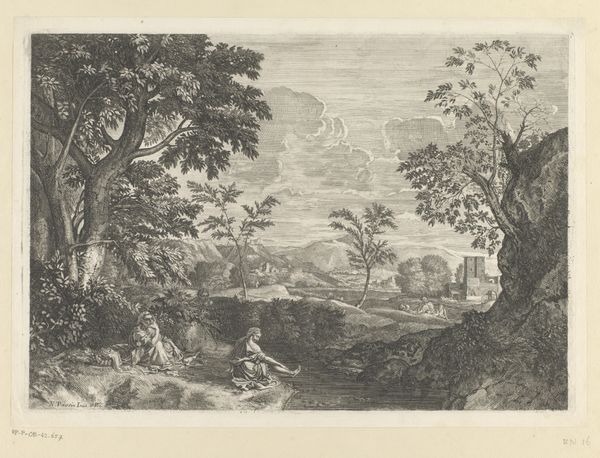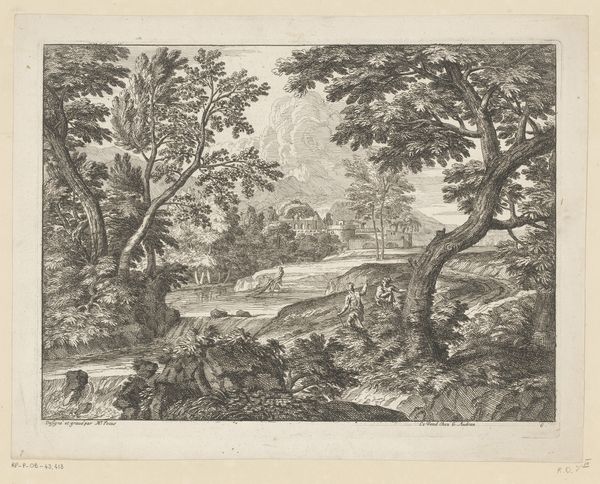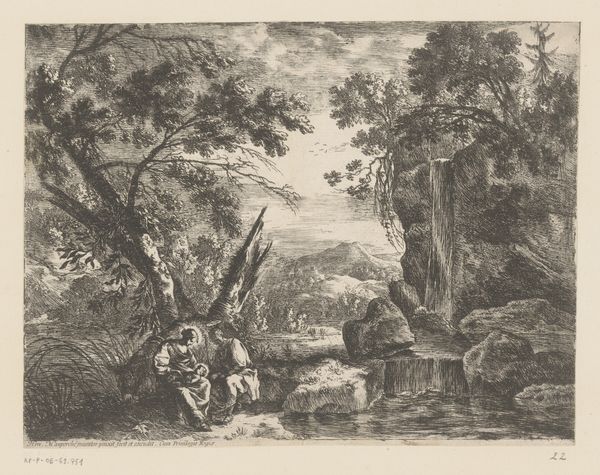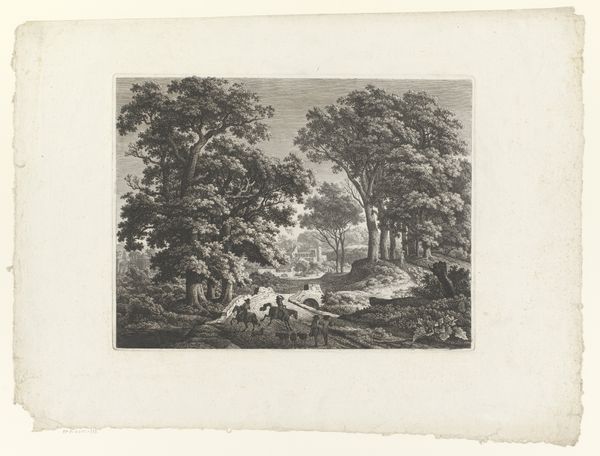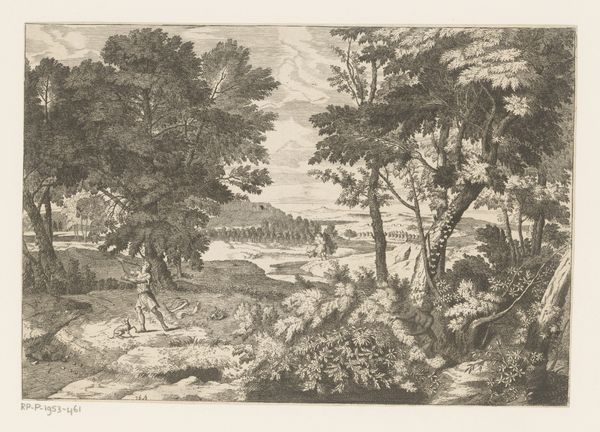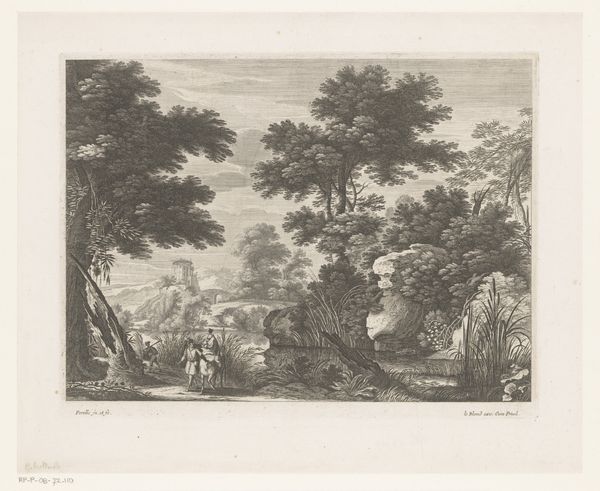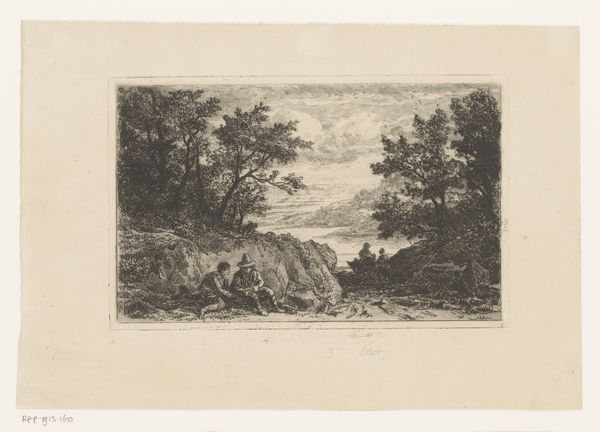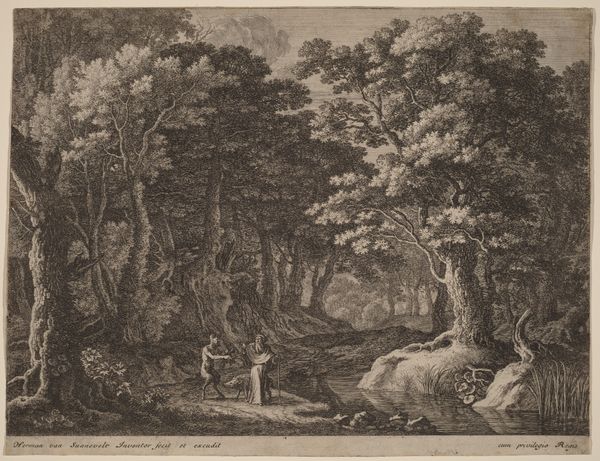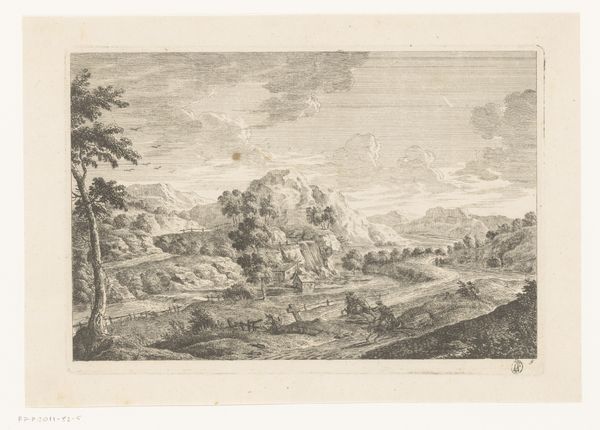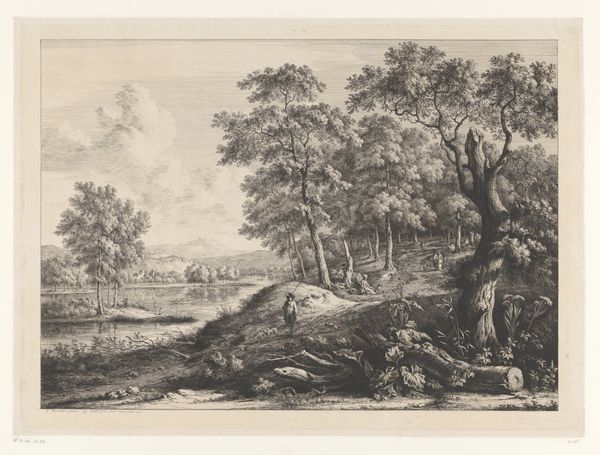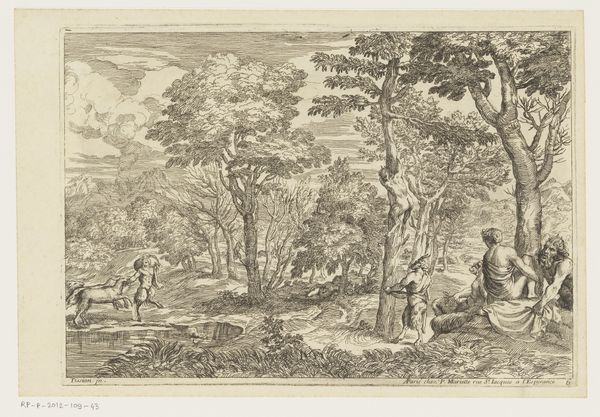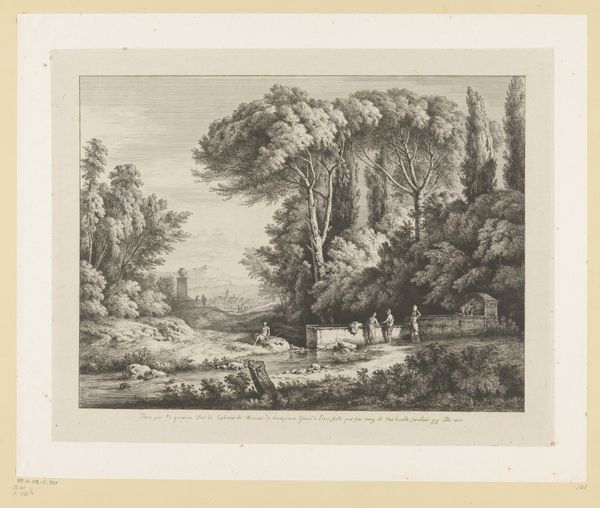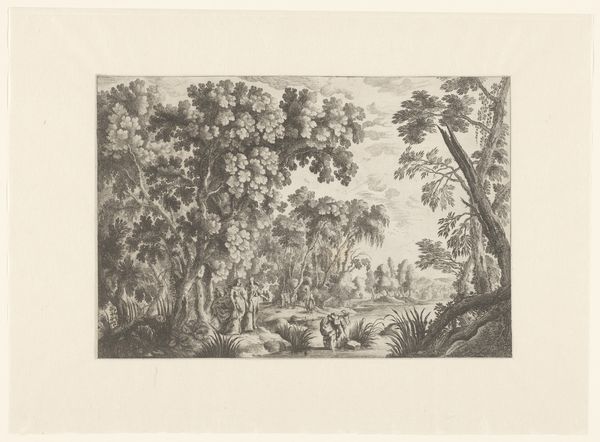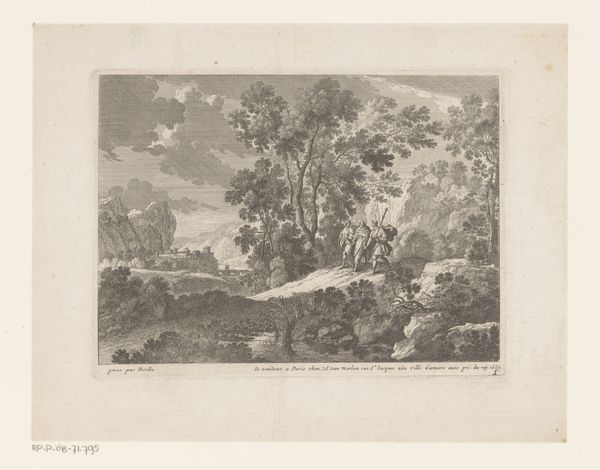
print, engraving
#
baroque
# print
#
landscape
#
figuration
#
engraving
Dimensions: height 315 mm, width 436 mm
Copyright: Rijks Museum: Open Domain
Louis de Châtillon created this landscape with two nymphs using etching, a printmaking technique that relies on the corrosive action of acid on a metal plate. The linear quality of the print, created by the etching process, gives the landscape its unique aesthetic. To make this, de Châtillon would have coated a metal plate with a waxy, acid-resistant substance, then scratched an image into it with a needle. This would expose the bare metal, which would then be submerged in acid. The longer the plate was left in the acid, the deeper the lines would be etched. After removing the plate from the acid and cleaning off the wax, the plate was inked, and then pressed onto paper. The final print reflects a deliberate process, balancing control and chance. It required skill and physical labour, from preparing the plate, to working the press, each impression bearing the marks of its making. It encourages us to reflect on the labour involved in its production, and the broader culture of printmaking that it represents.
Comments
No comments
Be the first to comment and join the conversation on the ultimate creative platform.
